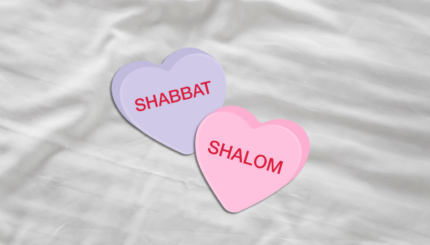In 2006, at age 23, I went to a gay bar for the first time.
I went by myself, because I didn’t have any queer friends to go with me. I trembled the whole way there, like I was doing something illegal. I felt so awkward that I only stayed a few minutes, came home, and emailed a friend as witness to my having taken what felt like an enormous step toward self-acceptance and the social life I wanted but had no idea how to create.
I can measure my coming out process in Boston and NYC Prides, recalling how I went from contemplative observer to boisterous bystander to Boston Keshet marcher to New York City Dyke March marshall to New York City Dykes on Bikes passenger. And I did build community, thanks largely to the existence of clubs, and so much more to my lesbian posse in graduate school, a group of women who always believed in me and showed me how to have that social life I’d craved — one that was, in retrospect, as important as romantic love or sex, but in a different way.
At last, I could go to a club with a group of people I knew. In the uncomfortable, loud, alcohol-drenched space of the gay club, I could feel the beginnings of a sense of belonging.
As an introvert, I never grew to like going to clubs. Eventually, I made enough bookish queer friends that I could find other ways to hang out and even date. I found other ways to be out in my community, like publishing queer poetry and serving as a trainer in Keshet’s LGBTQ-inclusion program for religious school educators. But in those early years, I stuck it out at clubs. The sheer overwhelm of mass queer exposure, the outrageous come-ons, the music, the dancing, and the abandon were not about “getting out there” as a shy kid. They were about getting into life as a queer adult. And without threat to my physical safety, they were terrifying enough.
Pride and gay clubs are about flaunting sexuality and gender fluidity. But they are not about sex or gender. They are about rejecting societal alienation and the deep, relentless shame it foments. I was always lucky enough to experience fear as an internal force and gay spaces themselves as the other side of that personal threshold, as a symbol of where I one day hoped to dance without fear.
My heart and bitter tears go out to the victims and loved ones of the Orlando Pulse terrorist attack. Who among you went out with fear in your hearts, hoping to dull it with dancing and community? Who among you will now have a whole extra layer of fear to work through as you continue this arduous personal journey? I am reminded that working through internalized homophobia in a safe environment is a privilege.. and an illusion.
I will always need Pride. We all need to keep dancing, inside and out.


